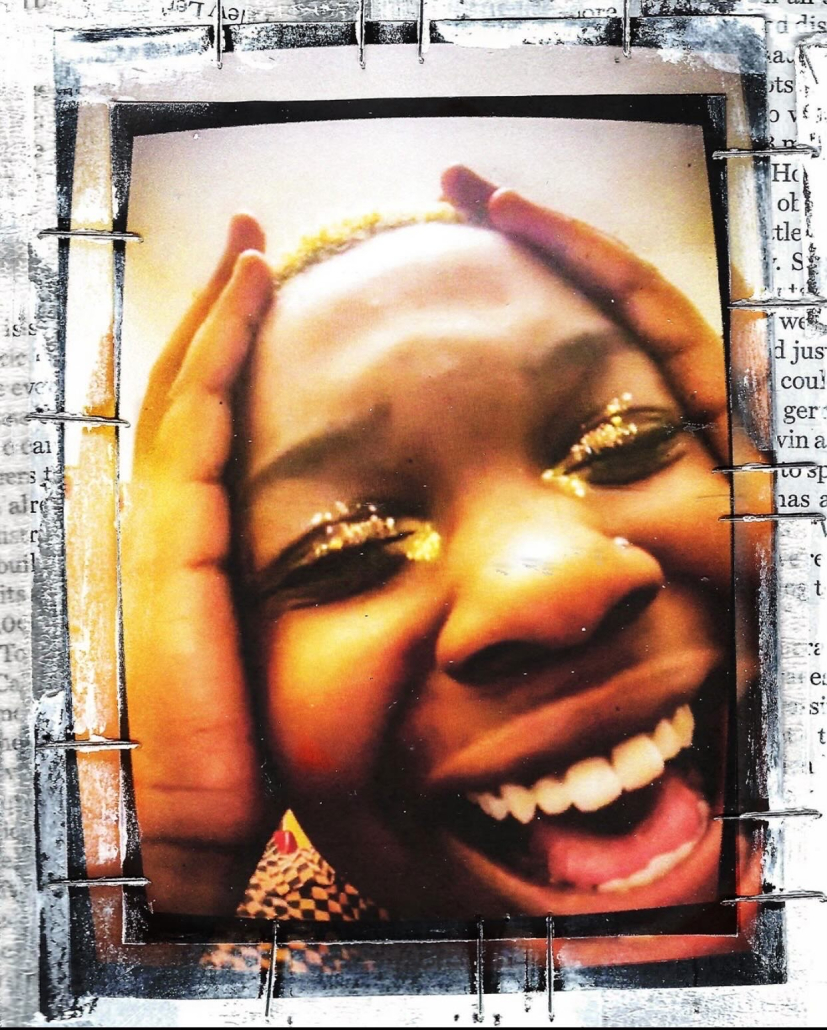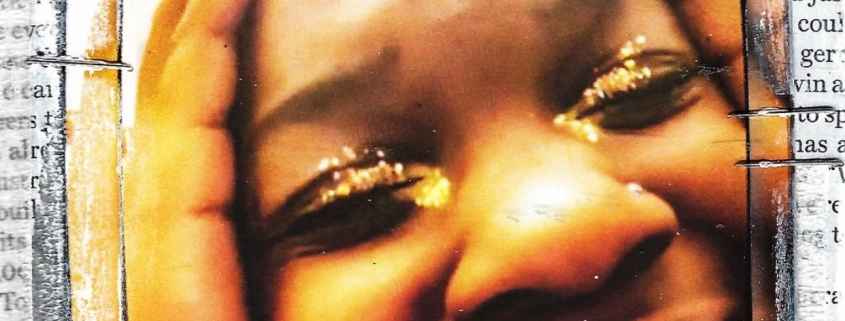Gertrude’s genre-defying sound mixes rap and R&B

Gertrude’s music exists at the crossroads of rap and rhythm & blues; it lies somewhere between empowering and brutally honest. Most importantly, her music highlights her intersectional identities as a Black woman and how she stays true to herself in the face of discrimination.
Gertrude is a moniker for Sasha-Courtney Hofisi, a junior majoring in music industry. While Hofisi got her start in rock and pop punk music, her recent tracks, released under the name Gertrude, reflect a more melodic rap sound.
Growing up in San Diego, Gertrude immersed herself in Southern California’s rock band scene. Her early music drew inspiration from the live shows she frequented, as well as bands who hail from San Diego, including Blink-182.
“Listening to bands is the reason why I started honing in on guitar as my main instrument other than voice,” Gertrude said. “[There is a] culture in Southern California of attending shows. I feel like everybody has a little backyard DIY band, and I think being involved in that culture and going to shows with my friends definitely put me in a position to start putting my music out there.”
One of Gertrude’s first ventures into making music was a band she started with her friends in middle school called “6 Minutes of Winter,” based on their shared love of the band 5 Seconds of Summer.
“We were all really obsessed with 5SOS and a lot of early 2000s pop punk music,” Gertrude said. “It was a lot of trial and error. It was a lot of showing up to each other’s houses and banging on drums and guitar and trying to record covers. But when I really think back to the first time in my music career so far that I was really putting myself out there, it was around that time.”
During her sophomore year at USC, Gertrude found herself drawn to creating rap and R&B.
“With a lot of the protests that were going on in 2020, I was feeling more distant from rock and alternative music,” Gertrude said. “I felt more drawn to Black genres as a listener, but also especially for myself and feeling more empowered [as a musician].”
Gertrude also drew on her experiences growing up in San Diego as one of few Black people in her community.
“The neighborhood and the community and the high school I went to was in a super white area, and as a result I experienced a lot of childhood bullying,” Gertrude said. “A lot of my experiences from being in that environment have been starting to come out in my music.”
Her single “Chick,” released June of last year, details her experiences with interracial dating. She sings, “Look at me with them teeny tight curls / All he wants is his world / And his diamonds and pearls and a little white girl.”
“[‘Chick’ is] a heartbreak song about me experiencing dealing with racial dating politics as a Black woman and dating outside my race and knowing that I wasn’t necessarily the object of desirability,” Gertrude said. “That story specifically stemmed from my time after high school, but that song definitely encapsulated my experience starting back to when I was growing up at a predominantly white high school.”
Her most recent release, “guilty,” which came out in November of last year, interrogates the complex feelings she has about putting herself and her career first. Gertrude will also be releasing a remix of the track with a new verse from rapper JAYKAYPRIME!, the artist name of Jephtha Prempeh, a recent USC graduate.
“I just loved it immediately, so I decided to write to it before she had even asked me to. It’s this quintessential early ’20s record about hedonism,” Prempeh said. “Whether you call it hedonism or reclaiming your time, I really resonated with this feeling of people having expectations around me, but for me to even keep my head above water sometimes I have to just close myself off to make sure that I get what I need to get done, done.”
Gertrude’s passion for performing live stuck with her, even though her genre shifted. Her father, Tapera Hofisi, recalls attending many of her performances across San Diego.
“In the beginning, we found an open mic. We would go there pretty much every week. She would perform at those alone, and sometimes she’d perform with friends,” the elder Hofisi said. “She’s great at what she does and not only does she talk about it, but she makes things happen … She’s a rockstar.”
Gertrude has performed all over San Diego and, more recently, at Los Angeles venues, such as the Silverlake Lounge and The Rattle L.A.
“It’s one of the main reasons why I make music, for live performance … My soul leaves my body in a way where I just forget that I’m on stage or what has happened because I’m just so in the moment, or I feel like I’m almost in a trance by performing,” Gertrude said. “It’s wild because I’ll come back from a show or be talking to people after a show who are like, ‘that was so great,’ but I don’t even remember what I did. It’s just very, very fulfilling.”
Gertrude’s strength lies in her individuality and genuine candor about her experiences, Prempeh said.
“Aside from just really admiring Sasha-Courtney as a person and as a friend, I think that Gertrude as an artist really speaks to showing up as yourself unapologetically,” Prempeh said. “Especially in this day and age, women in rap are expected to [have a] super brash and glossy and polished image with that kind of hood sensibility. And I feel like Gertrude has made this transition from this very white, indie rock space into rap and made it her own by sticking to a more punk or grungy ethos.”

